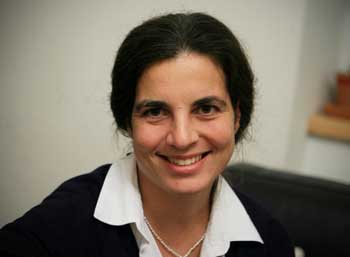 |
The International Association for Relational Psychoanalysis and Psychotherapy |
|
|
|
IARPP Member
in the Spotlight
|
|
SR: You presented at the IARPP conference in Madrid this past summer. Can you speak about the topic of your paper and your experience of being on the panel and at the conference? Being on the panel at the conference was a deeply enriching experience of creating new meanings and broadening cultural and clinical horizons of mutual trust and sincere care for the future of the human race. In my view, one of the very unique and important features of these conferences are the artistically and sensitively chosen cultural programs. These programs enable the participants to really live our ideas through the reality of the hosting country and to process ideas in a particular affective atmosphere. Because you meet mostly the same set of people, you can and also must personally, clinically and scientifically grow. It is a very different experience to present ideas in Rome, Athens, Baltimore, Tel Aviv or Madrid. In my training, which lasted three years, I studied extensively object relations theory and Stephen Mitchell's work. Afterwards, while developing our clinical practice which we manage to get funded by the Slovenian Ministry of Family and Social Affairs, we set up a clinical and PhD program in Marital and Family therapy at the University of Ljubljana, where we teach. I supervise beginning therapists in many therapeutic centers and clinics throughout Slovenia. In these centers we treat a variety of patient populations from individuals to families. The Ministry for Family and Social Affairs has funded our insitute’s therapeutic programs for treating families and individuals who cope with violence of all kinds (emotional, physical and sexual), for treating families who face alcoholism and eating disorders. Funding is also for treating young families (families with small children, adolescent parents, foster families and families with children with special needs). SR: Is there a general interest in psychoanalysis in Slovenia? Is there a community of therapists who are interested in Relational Psychoanalysis in particular? However, there were no prominent relational clinicians who addressed the human condition from a non-medical point of view. As a young psychologist and neuro-psychologist, I realized that there was a connection between how we worked with families and children and the well being of those children with serious problems. I found the relational ideas of mutuality, affect regulation and the importance of the therapeutic relationship very appealing. I still consider them the main force which promotes change and growth. Until the late 80´s, clinical and therapeutic work in Slovenia barely existed and was mainly connected with psychiatry, so there was a very big empty space and yearning for some relational psycho-therapeutic work. From 1996 till now the relational field has grown into a wide spread clinical, scientific and theoretic field. I started my PhD thesis around the phenomenon of transference and the relational paradigm which resulted in my book entitled, "The Discovery of the Relationship". Then, I proceeded with therapeutic work and published the second book, "The Hidden Power of the Family". I also started doing research on the therapeutic process. I investigated neuro-psychology, attachment and affect regulation. My third book, Love Heals Memory, is the result of this research. My next publication was dedicated to young families and babies, "The Sensitivity to Children", and the last one, which I published with my husband Tomaž Erzar, "Attachment Theory". Our society has long been subject to strong polarization that forces us to choose one side or the other: the Partisans, led by the Communist Party or the Home Guard, who during World War II allied with the occupying German forces. There seems to be no end to this polarization. This dichotomy can be avoided only by putting ourselves in a position of sympathy with all victims, which, given the emotional reactivity and polarization in the current political situation, is very difficult. |
|

 Interview with Katarina K. Erzar, PhD
Interview with Katarina K. Erzar, PhD